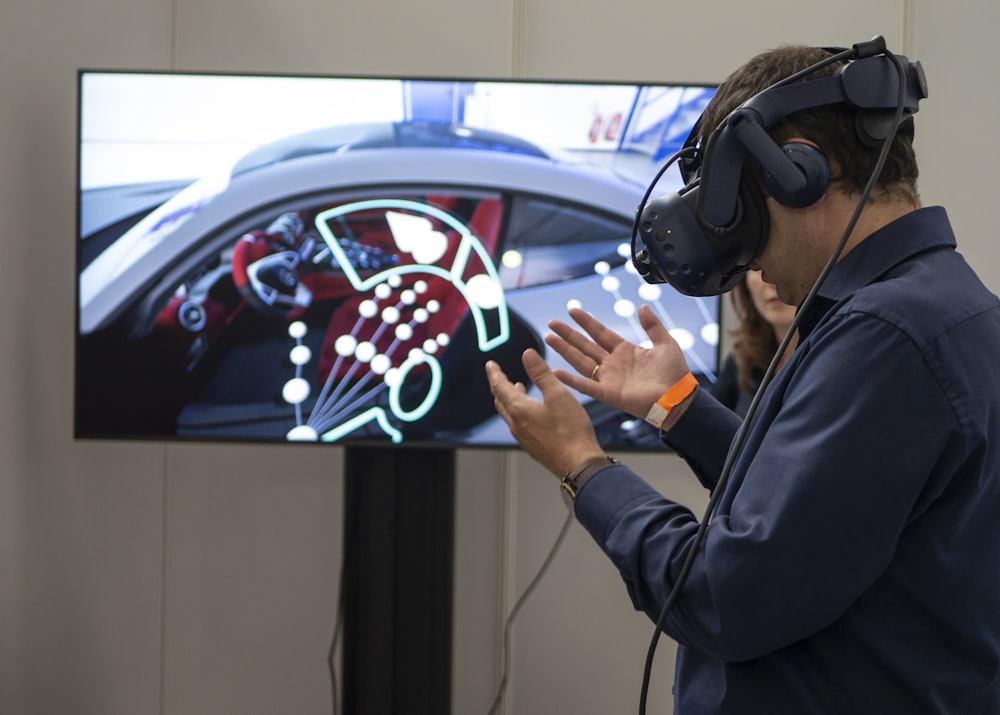目次
人工膝関節全置換術後(TKA)症例に対するバーチャルリアリティを用いたリハビリテーションの効果に関するシステマティックレビュー論文
近年,リハビリテーション分野でもさまざまな形でバーチャルリアリティを使ったリハビリテーションが展開されるようになってきております.
またバーチャルリアリティを使ったリハビリテーションのエビデンスも蓄積されつつあります.
今回は人工膝関節全置換術後(TKA)症例に対するバーチャルリアリティを用いたリハビリテーションの効果に関するシステマティックレビュー論文をご紹介させていただきます.

今回ご紹介する論文
Chin Med J (Engl). 2021 Dec 13. doi: 10.1097/CM9.0000000000001847. Online ahead of print.
Virtual reality-based rehabilitation on patients following total knee arthroplasty: a systematic review and meta-analysis of randomized controlled trials
Lin-Bo Peng 1, Yi Zeng, Yuan-Gang Wu, Hai-Bo Si, Bin Shen
Affiliations expand
PMID: 34908004 DOI: 10.1097/CM9.0000000000001847
今回ご紹介する論文は2021年に掲載された論文です.
研究の背景
Background: Physical therapy is regarded as an essential aspect in achieving optimal outcomes following total knee arthroplasty (TKA). The coronavirus disease 2019 (COVID-19) pandemic has made face-to-face rehabilitation inaccessible. Virtual reality (VR) is increasingly regarded as a potentially effective option for offering health care interventions. This systematic review and meta-analysis investigate VR-based rehabilitation’s effectiveness on outcomes following TKA.
理学療法は人工膝関節全置換術(TKA)後に最適な結果を得るために不可欠となります.
新型コロナウイルス感染症(COVID-19)の大流行によって,対面式のリハビリテーションは手が届かなくなりました.
仮想現実(VR)は医療介入を提供するための潜在的に効果的な選択肢とみなされるようになってきております.
このシステマティックレビューとメタアナリシスでは,TKA後のアウトカムに対するVRを用いたリハビリの有効性を明らかにすることを目的としております.
研究の方法
Methods: From inception to May 22, 2021, PubMed/Medline, Embase, Web of Science, the Cochrane Central Register of Controlled Trials, Scopus, PsycINFO, Physiotherapy Evidence Database, China National Knowledge Infrastructure, and Wanfang were comprehensively searched to identify randomized controlled trials (RCTs) evaluating the effect of VR-based rehabilitation on patients following TKA according to the Preferred Reporting Items for Systematic Reviews and Meta-Analyses statement and the Cochrane Handbook for Systematic Reviews of Interventions.
開始時から2021年5月22日まで,PubM/Medline,Embase,Web of Science,Cochrane Central Register of Controlled Trials,Scopus,PsycINFO,Physiotherapy Evidence Database,China National Knowledge Infrastructure,Wanfangを包括的に検索し,Preferred Reporting Items for Systematic Reviews and Meta-Analyses statementとCochrane Handbook for Systematic Reviews of Interventionsに従ってTKA後の患者に対するVRを用いたリハビリテーションの影響を評価している無作為対照試験(RCT)を特定するために使用しております.
研究の結果
Results: Eight studies were included in the systematic review, and seven studies were included in the meta-analysis. VR-based rehabilitation significantly improved visual analog scale (VAS) scores within 1 month (standardized mean difference [SMD]: -0.44; 95% confidence interval [CI]: -0.79 to -0.08, P = 0.02), the Western Ontario and McMaster Universities Osteoarthritis Index (WOMAC) within 1 month (SMD: -0.71; 95% CI: -1.03 to -0.40, P < 0.01), and the Hospital for Special Surgery Knee Score (HSS) within 1 month and between 2 months and 3 months (MD: 7.62; 95% CI: 5.77 to 9.47, P < 0.01; MD: 10.15; 95% CI: 8.03 to 12.27, P < 0.01; respectively) following TKA compared to conventional rehabilitation. No significant difference was found in terms of the Timed Up and Go (TUG) test.
8件の研究がシステマティックレビューの対象となり,7件の研究がメタアナリシスの対象となりました.
VRを用いたリハビリテーションは,1ヶ月以内の視覚的アナログスケール(VAS)スコアを有意に改善し(標準化平均差[SMD]:-0.44,95%信頼区間[CI]:-0.79~-0.08,P=0.02),1ヶ月以内のWOMAC(SMD:-0.02,P=0.02)を改善しました(71; 95% CI: -1.03 to -0.40, P < 0.01).
Hospital for Special Surgery Knee Score(HSS)は従来のリハビリテーションと比較して,TKA後1ヶ月以内および2ヶ月と3ヶ月の間で(MD: 7.62; 95% CI: 5.77 to 9.47, P < 0.01; MD: 10.15; 95% CI: 8.03 to 12.27, P < 0.01; それぞれ)有意に改善しました.
Timed Up and Go(TUG)テストに関しては有意差は認められませんでした.
研究の結論
Conclusions: VR-based rehabilitation improved pain and function but not postural control following TKA compared to conventional rehabilitation. More high-quality RCTs are needed to prove the advantage of VR-based rehabilitation. As the COVID-19 pandemic continues, it is necessary to promote this rehabilitation model.
VRを用いたリハビリテーションは,従来のリハビリテーションと比較して,TKA後の疼痛と身体機能の改善に有用でしたが,姿勢制御の改善効果は認められませんでした.
VRを用いたリハビリの優位性を証明するために,より質の高いRCTが必要であります.
COVID-19の大流行が続く中でこのリハビリテーションモデルを普及させることが必要であると考えられます.
今回は人工膝関節全置換術後(TKA)症例に対するバーチャルリアリティを用いたリハビリテーションの効果に関するシステマティックレビュー論文をご紹介させていただきました.
日本ではまだまだVRを導入したリハビリテーションが展開されている施設は少ないですが,新しい治療手段として今後もその有用性に関するエビデンスが公表されることが期待されますね.






